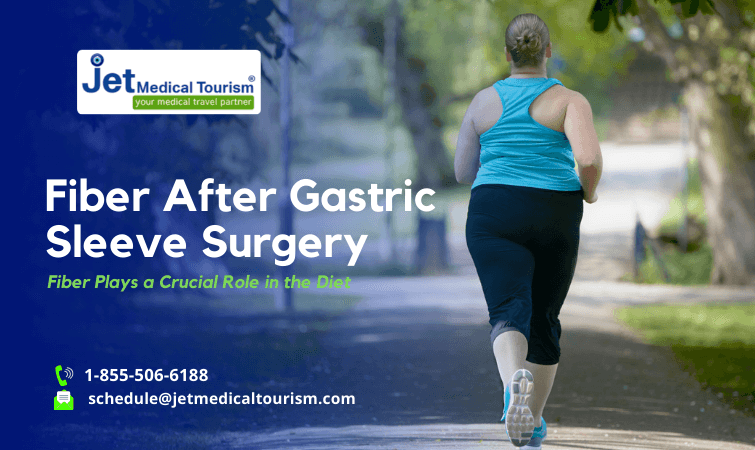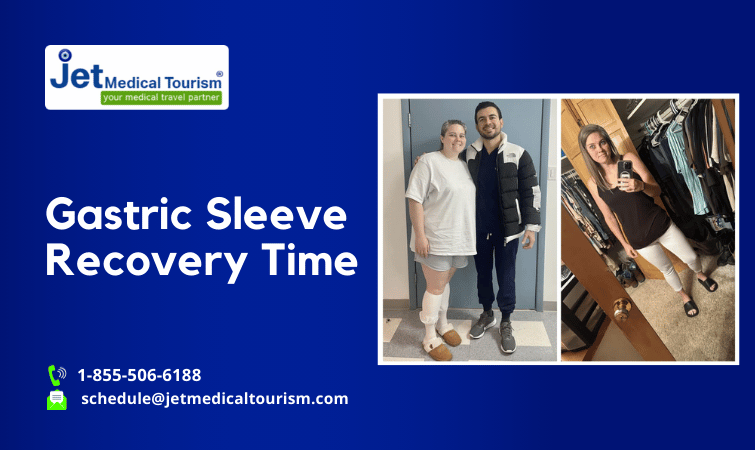Fiber After Gastric Sleeve Surgery
Fiber after gastric sleeve surgery is crucial for various reasons. It aids digestion, nutrient absorption with a smaller stomach, stabilizes blood sugar, lowers cholesterol for heart health, and induces fullness, managing weight. Incorporating fiber rich foods into the diet can contribute significantly to a smooth recovery and overall well-being after the surgery. Dietary recommendations may vary, so follow your surgeons’ post operative guidelines.
These general tips can help:
- Gradual Introduction: Introduce fiber-rich foods slowly, beginning with small portions, to help your body adapt without causing discomfort or digestive problems.
- Choose Soft Fiber Sources: Opt for soft, easily digestible sources of fiber initially, such as cooked vegetables, soft fruits, and well cooked legumes, to minimize any potential digestive distress.
- Soluble Fiber: Include soft soluble fiber sources such as oatmeal, cooked fruits, and vegetables for better stomach tolerance post-surgery.
- Stay Hydrated: Ensure adequate hydration when consuming fiber rich foods to support proper digestion and prevent constipation, as fiber absorbs water to add bulk to the stool.
- Consult with a Dietitian: Consult a registered dietitian for personalized advice on adding fiber sources to your diet. Consider your dietary needs and post surgery requirements.
Monitor your fiber intake to support digestion and transition smoothly to a fiber rich diet after gastric sleeve surgery. Always follow the dietary recommendations provided by your healthcare provider to promote a safe and successful recovery.
The Role of Fiber in Diet After Gastric Sleeve
The role of fiber in the diet after gastric sleeve surgery is multifaceted and important for several reasons. Here’s how fiber contributes to post-operative health:
- Promotes Satiety: Since gastric sleeve surgery reduces the stomach’s capacity, individuals may feel full more quickly. Fiber-rich foods can help promote a feeling of fullness, aiding in the management of appetite and potentially preventing overeating.
- Regulates Bowel Movements: After gastric sleeve surgery, some individuals may experience constipation due to changes in their diet and reduced food intake. Fiber helps in promoting regular bowel movements and preventing constipation, thus supporting digestive health.
- Stabilizes Blood Sugar: Fiber-rich foods digest slowly, stabilizing blood sugar levels. This is crucial for individuals at risk of or managing type 2 diabetes.
- Supports Heart Health: Soluble fiber can lower cholesterol, reducing the risk of heart disease. This is crucial for individuals post-gastric sleeve surgery, who may be prone to heart-related complications due to obesity.
- Aids Nutrient Absorption: After gastric sleeve, sufficient fiber intake can slow digestion, aiding better nutrient absorption with reduced stomach capacity.
Incorporate fiber-rich foods for health and weight management post-surgery. Introduce fiber gradually under healthcare provider guidance to ensure tolerance.
Best Fiber Supplements Post VSG Surgery
Your specific dietary needs, tolerance, and your healthcare provider’s guidance determine the best fiber supplement after gastric sleeve surgery. Frequently suggested options include:
- Psyllium Husk: A soluble fiber supplement, aids in regulating bowel movements and is well-tolerated after gastric sleeve surgery.
- Methylcellulose: Another gentle fiber supplement, methylcellulose, can aid in maintaining regular bowel movements without causing discomfort.
- Inulin: Inulin is a prebiotic fiber that can support digestive health and promote the growth of beneficial gut bacteria, contributing to overall gut health post-surgery.
- Guar Gum: Guar gum is a type of soluble fiber that can help promote satiety and regulate bowel movements, aiding in maintaining a healthy digestive system.
- Calcium Polycarbophil: This fiber supplement is known for absorbing water and aiding bowel movements. It supports post operative digestive concerns.
Always consult with your healthcare provider or a registered dietitian before incorporating any fiber supplements into your diet post-gastric sleeve surgery. They can provide personalized recommendations based on your specific health needs and dietary requirements to ensure the best possible outcomes and support your overall well-being.
Best High Fiber Foods After Sleeve Gastrectomy
After gastric sleeve, prioritize gentle high-fiber foods and healthy snacks for easy digestion. Consider these well-tolerated options:
- Cooked Vegetables: Steamed or boiled vegetables such as spinach, carrots, green beans, and zucchini are generally easier to digest compared to raw vegetables.
- Soft Fruits: Opt for soft, ripe fruits such as bananas, berries, and cooked apples, which are gentle on the stomach and provide essential vitamins and minerals along with dietary fiber.
- Oatmeal: Rich in fiber, oatmeal is easily tolerated post sleeve gastrectomy surgery. Opt for plain or lightly flavored types to avoid added sugars.
- Chia Seeds: These tiny seeds are excellent fiber sources, enhance nutrition when added to yogurt, smoothies, or pudding.
- Quinoa: Quinoa is a nutrient-dense whole grain that provides both protein and fiber. It can be included in a variety of dishes to enhance their nutritional content.
- Legumes: Well-cooked and easily digestible legumes such as lentils, chickpeas, and black beans are excellent sources of fiber and protein.
- Flaxseeds: Add ground flaxseeds to smoothies, yogurt, or oatmeal to boost your fiber intake. They also provide healthy omega-3 fatty acids.
Always introduce high-fiber foods gradually and consult with your healthcare provider or a registered dietitian to ensure that they align with your individual dietary needs and guidelines post-gastric sleeve surgery.
Conclusion
After gastric sleeve surgery, fiber aids digestion, nutrient absorption, blood sugar stabilization, heart health, and weight management. Follow the article’s tips for an effective fiber integration, including gradual introduction and consulting a dietitian. Include fiber-rich foods like cooked vegetables, soft fruits, and oatmeal, and consider supplements like Psyllium Husk, Methylcellulose, Inulin, Guar Gum, and Calcium Polycarbophil for a smooth recovery.






